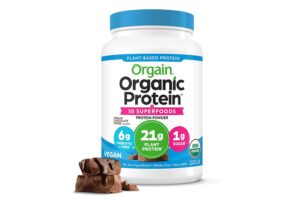How to Keep Your Immune System Strong Year-Round

How to Keep Your Immune System Strong Year-Round
Maintaining a strong immune system throughout the year is crucial for staying healthy and resilient to infections. By adopting a healthy lifestyle that includes a balanced diet, regular exercise, stress management, and adequate sleep, you can support your immune system and overall well-being.
Also Read: https://nightcloakeddeck.co.uk/how-to-keep-your-immune-system-strong-year-round/
Table of Contents
- Introduction to Immune Health
- Eat a Balanced Diet
- Exercise Regularly
- Manage Stress Levels
- Get Quality Sleep
- Hydration and Its Role in Immune Health
- Supplements and Natural Boosters
- Common Immune-Strengthening Practices
- FAQs About Immune System Health
- Conclusion
1. Introduction to Immune Health
The immune system protects your body from harmful pathogens like bacteria and viruses. Keeping it strong is essential for reducing the risk of illness and maintaining optimal health. However, maintaining immune health year-round requires more than just reacting to illness—it involves a proactive approach to wellness.
2. Eat a Balanced Diet
One of the best ways to keep your immune system strong is through nutrition. A diet rich in fruits, vegetables, lean proteins, and healthy fats can provide the essential nutrients your immune system needs.
- Vitamin C: Found in citrus fruits, bell peppers, and spinach, this vitamin boosts your immune system by supporting various cellular functions.
- Vitamin D: Helps regulate immune responses. Found in fatty fish, fortified dairy, and exposure to sunlight.
- Zinc: Found in nuts, seeds, and beans, zinc plays a vital role in immune cell production and function.
A diverse and nutrient-rich diet provides the fuel your body needs to fight off infections.
3. Exercise Regularly
Regular physical activity boosts circulation, which helps immune cells move through your body more efficiently. Aim for at least 150 minutes of moderate exercise each week. Activities such as brisk walking, swimming, or cycling can enhance immune function.
Even small daily activities, like taking the stairs or stretching, can help improve circulation and support your immune system.
4. Manage Stress Levels
Chronic stress can weaken the immune system, making you more vulnerable to illness. Managing stress through relaxation techniques is crucial for immune health.
- Meditation: A simple mindfulness meditation practice can help lower stress levels.
- Deep Breathing: This technique can immediately reduce tension and promote relaxation.
By lowering stress hormones like cortisol, you help your immune system function more effectively.
5. Get Quality Sleep
Sleep is essential for a healthy immune system. While you sleep, your body repairs and regenerates cells, including immune cells. Adults should aim for 7-9 hours of restful sleep each night.
Some ways to improve sleep include:
- Creating a consistent bedtime routine.
- Avoiding screens an hour before bed.
- Sleeping in a dark, quiet, and cool environment.
6. Hydration and Its Role in Immune Health
Staying well-hydrated is crucial for your body to operate effectively. Water supports the production of lymph, a fluid that circulates throughout your immune system and carries immune cells. Dehydration can slow down immune responses, so make sure to drink plenty of water throughout the day.
7. Supplements and Natural Boosters
In addition to a balanced diet, certain supplements can provide an extra boost to your immune system. However, it’s always best to consult with a healthcare professional before adding any supplement to your routine.
- Elderberry: Known for its antiviral properties, elderberry can help reduce the severity of colds.
- Probiotics: A healthy gut supports immune function, and probiotics found in yogurt or supplements can help balance gut bacteria.
- Echinacea: A popular herb that may help boost immune responses during cold and flu season.
8. Common Immune-Strengthening Practices
There are some daily habits that can also contribute to a stronger immune system:
- Good Hygiene: Washing your hands regularly helps prevent the spread of germs.
- Limit Alcohol: Excessive alcohol consumption can impair immune function, so moderation is key.
- Avoid Smoking: Smoking weakens the immune system and increases susceptibility to infections.
Also Read: https://nightcloakeddeck.co.uk/how-to-keep-your-immune-system-strong-year-round/
FAQs
Q: How does exercise improve immune function?
A: Exercise enhances circulation, allowing immune cells to move more efficiently through the body, thus improving immune response.
Q: Can supplements really boost immunity?
A: Certain supplements, like vitamin C, zinc, and elderberry, can help support immune function, but they are most effective when paired with a balanced diet.
Q: How much sleep do I need to support my immune system?
A: Adults should aim for 7-9 hours of quality sleep per night to allow the body time to repair and strengthen immune responses.
Q: Does hydration affect the immune system?
A: Yes, staying hydrated supports lymph production, which helps carry immune cells throughout the body.
Conclusion
Maintaining a strong immune system year-round involves a combination of proper nutrition, regular exercise, stress management, and quality sleep. By integrating these habits into your daily routine, you’ll be better equipped to fend off infections and enjoy a healthier life. Additionally, consider natural supplements and lifestyle practices that provide added immune support, always ensuring you consult a healthcare professional for personalized advice.






